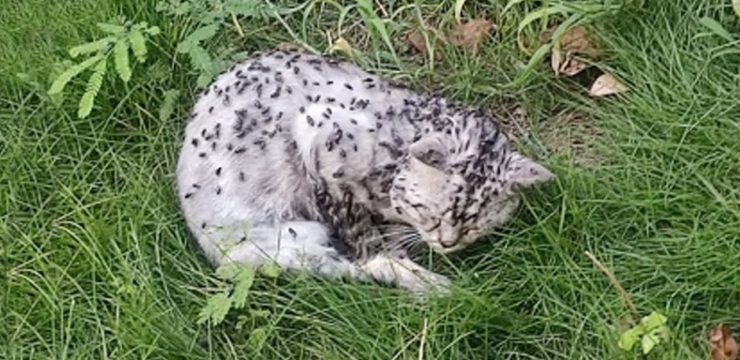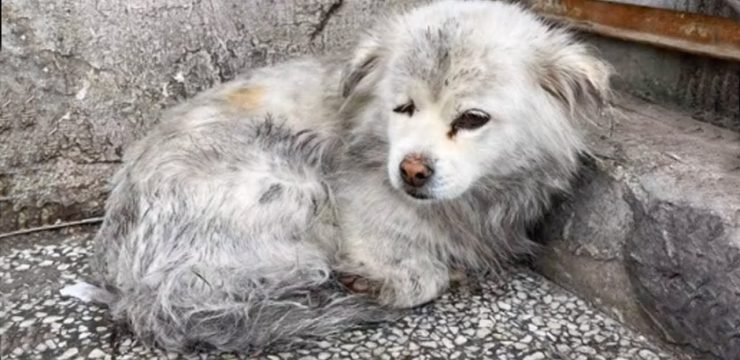In a world of billions of people, there are countless unique stories that illustrate the different ways individuals choose to live. Among these stories, some stand out as extraordinary, challenging the norms of society and presenting lives that are vastly different from our own. This is one such story—a tale of a man who lived by his own rules and became an icon of unconventional living. This is the story of Amou Haji, a man whose decision to avoid bathing for 67 years and adopt an unusual lifestyle attracted worldwide fascination.
Amou Haji was a hermit from Iran, who made the extraordinary choice to abstain from bathing for over six decades. For most of us, taking a shower or bath is a routine part of our day-to-day lives, viewed as essential for health and well-being. Cultures around the world may differ in how frequently people bathe, yet the concept of regular hygiene is nearly universal. However, Haji rejected this notion entirely, with a lifestyle that puzzled many and inspired curiosity among those who heard about him. According to Haji himself, he had serious reasons for his choice, rooted in personal beliefs and past experiences.

Haji lived a secluded life in Dez Gah, a village in Iran, where he became a local legend known to all. The name “Amou Haji,” which means “old man” in Persian, was how the villagers referred to him, though his real name was unknown. He was said to have been born around 1928, and over the years, he earned a reputation for his eccentric way of life. Rumor has it that a heartbreak earlier in his life led him down this unusual path, after which he chose to withdraw from society and live a life of solitude. Settling on the outskirts of the village, he made a cinderblock hut his home, and the villagers, familiar with his presence, left him in peace.
One of the most notable aspects of Haji’s appearance was his uniform gray skin and hair—a result of decades without washing. His approach to personal hygiene was so minimal that he burned his hair off with fire when it grew too long, as this seemed easier than trimming it. This self-maintained look became a defining feature of his appearance, adding to the mystique that surrounded him. Over time, Haji’s lifestyle choices earned him attention not only in Iran but internationally, as his story reached people around the world.
While many assumed Haji had an intense fear of water, this was only partially accurate. Although he refused to bathe, he did not abstain from drinking water; in fact, he was reported to consume as much as five liters a day. However, he drank it from a dirty tin can, again breaking from common health standards. His diet was equally unconventional. While locals occasionally offered him fresh food, he declined and preferred to find his own, often opting for roadkill. It was said that his favorite meal was porcupine, which he would eat raw regardless of its freshness. This pattern of eating roadkill became another fascinating aspect of his life that defied societal norms.
Beyond his diet, Haji’s smoking habits were unusual as well. Rather than conventional tobacco, he was known to fill his pipe with animal dung, and he reportedly enjoyed smoking it regularly. At times, he would indulge in cigarettes, sometimes seen smoking multiple cigarettes simultaneously, creating a spectacle that further cemented his reputation as an unconventional figure. Despite these habits, which seemed unhealthy by modern standards, Haji appeared to maintain good health throughout his life, a fact that puzzled many observers.
Haji’s health, considering his lifestyle, became a point of interest for medical professionals. Dr. Gholamreza Molavi from Tehran University of Medical Sciences School of Public Health conducted tests on him before his passing. Remarkably, Dr. Molavi found that Haji was in surprisingly good health, defying expectations that his lifestyle would negatively impact him. This paradox—the idea that someone who lived in such unsanitary conditions could still be healthy—fascinated researchers and sparked discussions on the role of modern hygiene in human health.
Ultimately, Haji lived to the impressive age of 94, a milestone he reached without ever changing his ways. Ironically, he passed away only a few months after villagers convinced him to take a bath, a detail that some found poignant. His death stirred reflections on how individuals choose to live and whether lifestyle choices as personal as bathing or diet truly define one’s quality of life or longevity.

The legacy of Amou Haji serves as a reminder of the diversity of human experiences and the different paths people take. His life may seem bizarre by most standards, yet it exemplifies how one person’s idea of happiness or fulfillment can be vastly different from the mainstream. The story of Amou Haji offers a unique perspective on resilience, autonomy, and the human spirit’s capacity to live by its own rules, no matter how unconventional.
In the end, Amou Haji lived as he wanted—free from the expectations of others, true to himself, and unapologetically unique. His story will likely endure as a curious yet meaningful example of how diverse the world truly is, inviting us to ponder the different ways one can live a fulfilled life.





